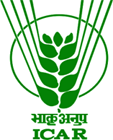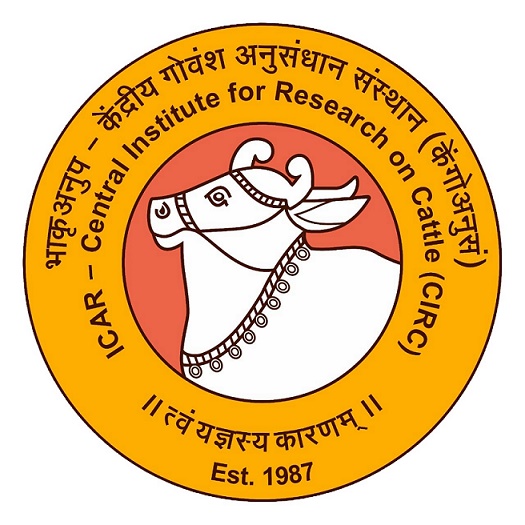 |
 |
 |
 |
 |
 |
Frieswal Cattle : National Milch breed
The Frieswal project was
conceptualized to develop a crossbred strain of cattle for the country yielding
4000 kg of milk with 4% butter fat in a mature lactation of 300 days. The
project is ongoing with Military Farms as they are the largest single source of
crossbred cattle with proper pedigree and recording systems, which was suitable
for the induction of superior exotic germplasm. Further by establishing
collaboration between Military farms of Ministry of defence and ICAR-CIRC,
livestock resources and infrastructure from the Military farms and technical
expertise from ICAR, have been brought to a common platform, which helped to
utilize Friesian-Sahiwal crossbred as a base for the evolution of a new
crossbred national milch breed-Frieswal through inter se mating, selection and
progeny testing.
Further by establishing
the progeny testing network across the 37 Military Farms to cover all the
agro-climatic zones of the country, make the strain suitable for use in any
part of the country.
Frieswal cattle: Breed for Milk production
The Frieswal cattle is
developed utilizing the crossbreds of (Holstein×Sahiwal) in 37 Military Farms
to cover all the agro-climatic zones of the country. Good performance of
Frieswal cows at different locations indicates the adaptation of this germplasm
in various agro climatic conditions of the country. The utilization of large
herds of Military farms in various agro-climatic zones of India also augmented
the production of Frieswal bulls for semen collection and progeny testing by nominated
mating of elite cows and proven bulls in the project. This had also
provided an option to sale the semen of meritorious bulls outside the project
area for the benefit of farmers and other stakeholders.
The average milk
production potential of Frieswal cows based on 300 day milk yield is more than
3300 kg, and more than 10% of the Frieswal herd belongs to elite
classification, with production above 4000, 4500, 5000kg or more milk during
first, second or subsequent lactation, respectively. The genetic (0.63 kg/year)
and phenotypic (2.43 kg/year) trends in first lactation milk
production were positive.
The reproduction
parameters of the Frieswal animals were also optimum unlike other crossbred
populations of the country. On an average, 80% of the animals calved for
before 3 years of age. Moreover the growth rate of these animals was optimum,
so that there was no decline in production performance observed due to calving
at an early age. This substantially will increase the productive life of the
animals and there by the profitability of rearing Frieswal animals will be
quite high in farmers’ herds. Further calving interval and service period
of these animals were also within the limits, which adds to the
The availability of genetically proven bulls of crossbreds has been limited at all times which hindered the implementation of genetic improvement programmes. As per the 20th national livestock census (2019), the crossbred female population is 50.42 million and there is a huge gap in the number of breedable males available and actually required to breed this vast female cattle population. The Frieswal project is the only project in the country where more than 250 bulls were progeny tested. The quality semen produced from bulls borne out by mating of proven bulls and elite cows can be utilized in the field conditions to improve the production potential of crossbred population. Also, the proven bull semen is also made available to the stakeholders for artificial insemination of the elite animals in the progressive farmer herds. Further per year more than 100 male calves are produced by elite mating, under the project. These male calves can be extensively used for semen collection and genetic improvement programmes of the country.